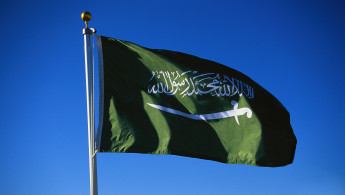Saudi targets $100 bn yearly in foreign investment
Saudi Arabia seeks to attract foreign investment of more than $100 billion annually under a National Investment Strategy announced Monday as part of efforts to diversify the oil-dependent economy.
The strategy is expected to raise annual foreign direct investment flows to 388 billion riyals ($103 billion) and increase annual domestic investment to 1.7 trillion riyals by 2030, the Saudi Press Agency said after Crown Prince Mohammed bin Salman, the kingdom's de facto ruler, launched the initiative.
SPA said it will be "a key enabler" of his Vision 2030 plan, announced in 2016 to diversify the economy of the world's biggest oil exporter.
"Today, the kingdom embarks on a new investment era to empower Saudi and international private-sector investors with more and better opportunities," SPA quoted Prince Mohammed as saying.
He added that "the NIS will draw up comprehensive investment plans for sectors, including manufacturing, renewable energy, transport and logistics, tourism, digital infrastructure, and health care," SPA said.
Among its measures the strategy is to establish special economic zones with competitive regulations and incentives, transfer strategic supply chains to the kingdom, and develop new financing solutions for the private sector to promote capital formation, according to SPA.
The Arab world's largest economy is trying to shed its reputation as an ultraconservative nation with complicated administrative procedures and obsolete regulations.
Since becoming de facto leader in 2017, Prince Mohammed has introduced sweeping economic and social changes, including allowing women to drive, the reopening of cinemas, and permitting mixed-gender music concerts and other entertainment options.
But simultaneously, the prince launched a sweeping crackdown on dissent and free speech, arresting women activists, clerics and journalists as well as royal family members.
Measures such as those announced Monday have already been taken by other Gulf countries, particularly the United Arab Emirates.





 Follow the Middle East's top stories in English at The New Arab on Google News
Follow the Middle East's top stories in English at The New Arab on Google News


